
Kino Lorber
They probably should have stopped with The Man Who Shot Liberty Valance. That would have been the right note for John Ford and John Wayne to end on: a genuine classic, capping a thirteen-film collaboration that essentially invented the Western (Stagecoach), later deconstructed it (The Searchers), and finally eulogized it in Liberty Valance with the line that haunts all Westerns: “When the legend becomes fact, print the legend.”
But then John Ford—aging, half-blind, too weak to stand—wanted a last outing with the crew and company of actors who’d traveled with him for so many years.
Chief among them was John Wayne, who was a tough guy to the world but a surrogate child to Ford, and a thwarted one at that. The director would jeer at him during takes, mock his war-hawk conservatism: Wayne endured it with grim devotion.
When Ford asked him to play the title character in Donovan’s Reef, he didn’t wait to say yes. He knew that Ford was past his prime. He knew that he, John Wayne, was too old for a romantic lead. But he did it because his mentor had asked him to, and that’s the kind of thing you do for the man who helped you become the greatest Western actor of all time.
Donovan’s Reef is not a great film or even a very good one, but it deserves respect, if only because this is the last time we’re seeing John Wayne and John Ford working together.
There’s no truth to the story that Wayne secretly directed the movie on the days Ford was too ill to come to the set. What Wayne did do was much more important. Paramount wouldn’t bankroll the movie, so Ford and Wayne pooled their resources and made it themselves. As a producer, Wayne was in a position to fight the battles that Ford couldn’t. He closed the deal with Lee Marvin, even though Marvin’s asking price had shot up after the success of Cat Ballou.
On set, Wayne kept everyone’s spirits up. He made sure that Marvin stayed just drunk enough to tolerate Ford’s improvisational style, but not so drunk that he missed his morning call. Ford directed Donovan’s Reef, but John Wayne held it together.
All of this brings an elegaic undertone to a movie that is supposed to be a knockabout comedy. It begins some years after WWII as two Irish-Americans, Gilhooley (Marvin) and Donovan (Wayne) meet on the fictional island of Haleakaloha for their annual bar brawl. Why they fight, even they can’t remember. We learn that both men were born on the same day—December 7, the date of the Pearl Harbor attacks—and had served together in the Navy for a tough battle with the Japanese on this very island. The island they helped save has now become their adopted home.
These are quintessential John Ford heroes.
They fight, they drink, they don’t apologize for being men and they don’t take bows. The islanders are grateful in the way that islanders always are in these movies. Gilhooley is nicknamed “Boats,” indicating that he was once a boatswain’s mate, while Donovan is called “Guns,” a gunner’s mate. Even the children call them by these names, three in particular: elder daughter Lelani (Jacqueline Malouf) and her younger brother and sister.
They are the children of the beloved local physician, Dr. William Dedham (Jack Warden, who was apparently gruff even when he was a young man). As their deceased mother was a princess of the island, they are biracial—or, as the script insists on calling them, half-caste. Although we’re clearly meant to celebrate this mixed parentage, it’s done in such a hamfisted way that the movie nearly undercuts its own message of tolerance.
We keep getting little reminders that these children are worthy of acceptance in white society only because they’re island royalty (to his credit, Ford was careful to cast child actors who were actually biracial). Other characters are less fortunate—particularly a Chinese civil servant who’s referred to as “wily” and called a “Chinaman” more than once, even though he was smart enough to get into Amherst.
But the movie’s not about race relations in French Polynesia.
That’s only a backdrop for a story about Donovan’s fractious romance with Amelia Dedham (Elizabeth Allen), the Boston Brahmin daughter that Dr. Dedham never knew. She’s here to follow up on rumors that her father is leading a dissolute lifestyle in the islands, and has therefore violated the morals clause of a will that would have given him sole control of her family’s shipping company. You won’t need to remember that because the script pretty much forgets about it as soon as she arrives.
Mainly, she’s here to be haughty and straitlaced until Donovan melts her frosty heart with manly kisses and she learns to embrace this island community in all its eccentric and unpronounceable ways. It’s a good setup for comedy, or it was the last time Ford directed it, when it was set in Ireland and she was Maureen O’Hara and the title was The Quiet Man.
Elizabeth Allen is too refined and too nice for the part of stuck-up schemer, which actually helps the movie along. Its tone is too whimsical to support a villain, even one who comes around at the end. She and Wayne don’t strike any romantic sparks—he reportedly felt awkward romancing a leading lady twenty-two years his junior—but there’s a friendliness between them that carries us through.
She proves she’s not as dainty as she looks (she beats him in a swim race) and he proves he’s more respectable than she thinks (he owns a fleet of commercial sailboats). It would all go down smoothly except for the final scene, in which he flat-out spanks her to show who’s boss. The soundtrack lets us know that we’re meant to find this funny.
The supporting cast all come off great.
The kids are cute but not cloying.
Lee Marvin owns every grim-faced, soused moment he’s on screen. Dorothy Lamour is underutilized, but she’s still Dorothy Lamour. Cesar Romero is in unctuous form as the colonial governor who thinks he stands a chance with John Wayne’s gal. As Dr. Dedham, Jack Warden is credibly upright and saintly, although I kept waiting for him to tell Woodward and Bernstein to get the hell into his office.
One minor part gets a sentimental mention: that’s the colonial sergeant played by Mike Mazurski. He mostly played mob goons, so it’s strange to see him in a kepi, but it works. If you’re my age, you might remember him as Igor in that Gilligan’s Island episode where everybody switches minds: yes, he was briefly a bodyswapped Ginger Grant.
Before he started acting, Mazurski was an attorney, then became a pro wrestler when he discovered he could make more money in tights. Then he was Mae West’s bodyguard. He was born in the Austro-Hungarian empire and worked with Fritz Lang and he gives Donovan’s Reef a healthy dose of wiseguy swagger, even though he plays a French gendarme like he’s from the South Bronx part of Paris. Ford had a gift for making minor characters shine, and Mazurski does not let him down.
Is that all there is?
I wouldn’t go to Donovan’s Reef for the tormented obsessions of The Searchers or the razor ironies of Liberty Valance, but there’s something going on beneath the surface of this comedy, with all its bar-brawling and rough wooing.
A lot of familiar John Ford themes are at play here. Polynesia substitutes for the Wild West as an “outside” community where people can unlace the strictures of polite society and embrace their true selves, blurring cultural boundaries and celebrating unlikely bonds. But I think something even more than that is going on. I think this is John Ford saying goodbye.
I don’t mean a goodbye to movies—he still had 7 Women ahead of him—or even a goodbye to his partnership with his traditional stable of actors, John Wayne foremost among them. I believe this is his farewell to a kind of John Ford picture, the same way that The Great Dictator was Charlie Chaplin’s farewell to the Tramp and North by Northwest was a farewell to Hitchcock’s “running man” protagonists.
Donovan’s Reef is threaded with references to his other pictures, some more obvious than others (one of Donovan’s boats, the Inisfree, is named for the fictional setting of The Quiet Man). Stock characters (comic priests, loose women) dress the set; familiar set-piece scenes (religious pageants, fistfights as male bonding rituals) make a ritual appearance. A favorite storytelling trope of Ford’s, the intersection of violence and propriety, is fulfilled when Donovan’s slot machine disgorges a small mountain of coins, allowing the local padre to buy a new roof for the church.
At the center of it all is Donovan, the classic take-it-like-a-man hero and surrogate father. Literally. In order to shield Dr. Dedham from Amelia’s prying eyes, Donovan pretends to be the father to Dedham’s three biracial children. This may be Ford’s most persistent theme: the hero who assumes a paternal role toward people who are unrelated by blood, but who nonetheless behave as a family.
And we are seeing that hero for the last time. Ford’s actual last film, 7 Women, would be the opposite of every story he ever told: a female-led cast; an austere, internalized landscape; an anti-religious vibe. Before he could enter that new creative frontier, he had to let the last one go.
The French Polynesia of Donovan’s Reef no longer exists—if it ever existed. The world it gives us is bold but constricted, a pocket frontier where the hero heroes and everyone else sighs in gratitude. The leading lady wants to fight him, but instead she dissolves into a puddle of womanhood.
One minute, Donovan and Gilhooley are smashing each other with beer bottles and the next he’s giving Gilhooley the deed to his saloon. The children know their beloved “Uncle Guns” will keep them safe and be their second dad. We’re probably all better off without this world: we’ve seen what male self-assurance can do to the national psyche. Still, it is good to give at least a backward nod of respect to this honest, egoless style of hero.
As Hamlet said of his father: he was a man, take him for all in all; we shall not look upon his like again.
Extras include two commentaries, The Growler Story a short film directed by John Ford, and trailer.




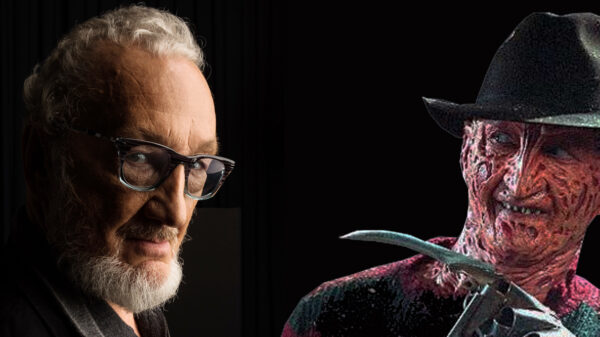

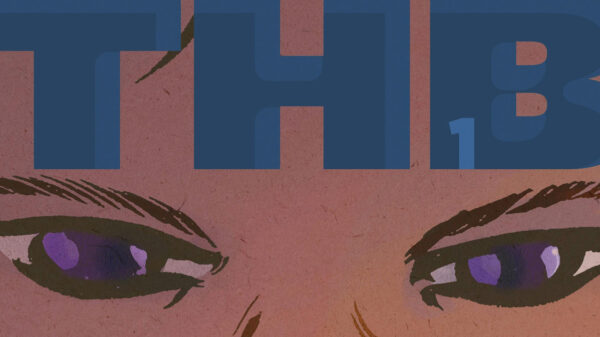

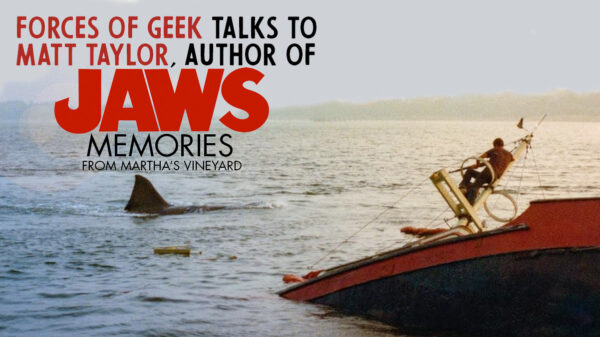
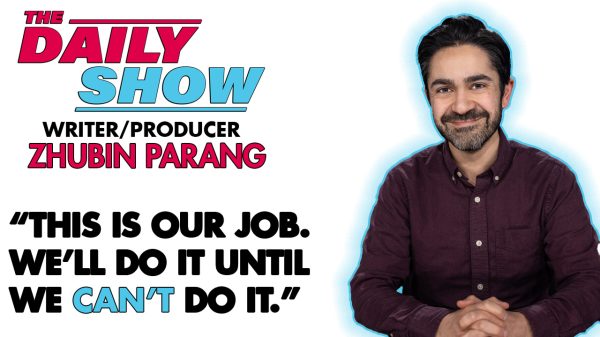
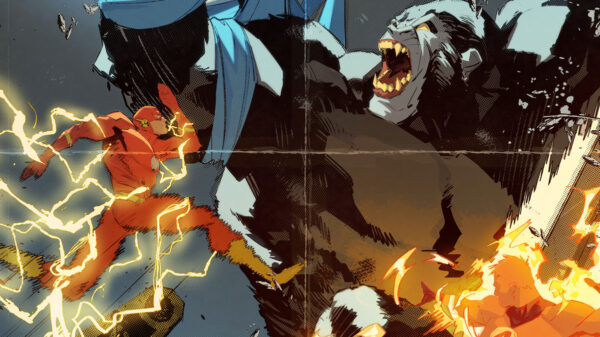
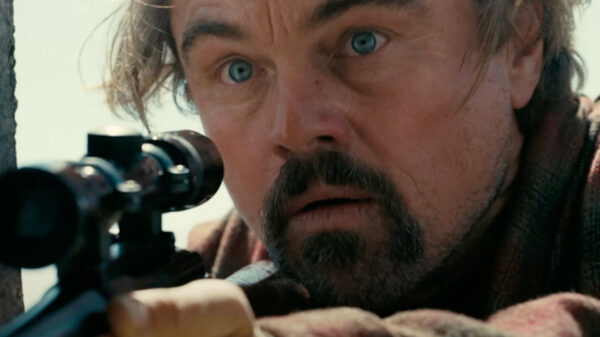
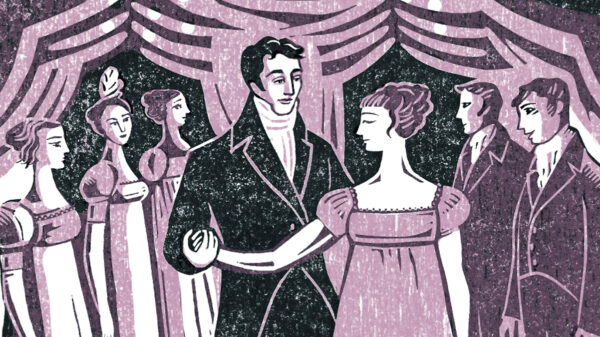
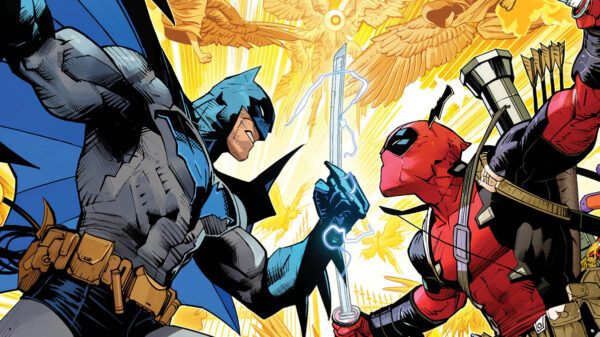
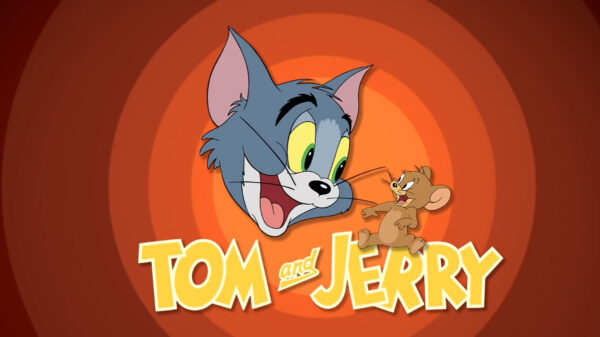





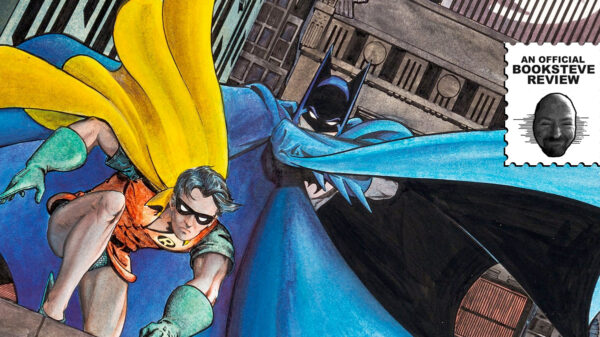
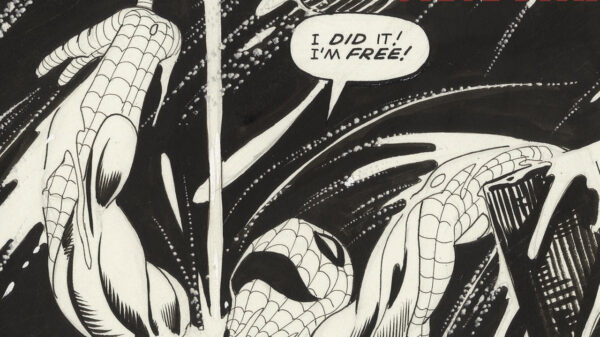
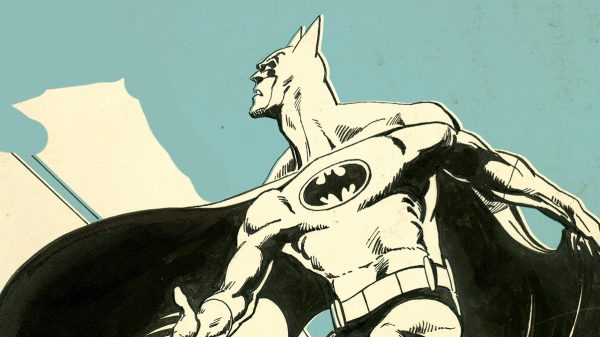

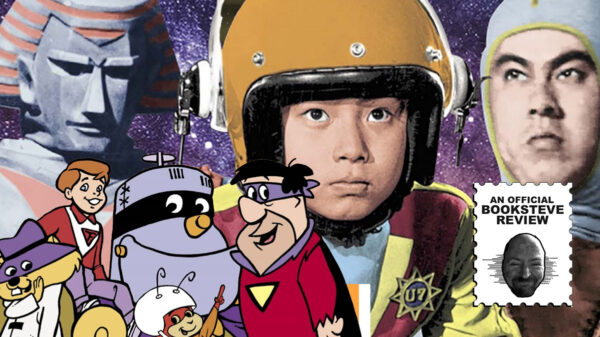
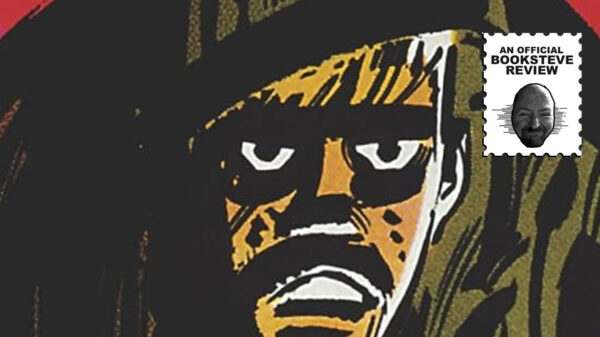
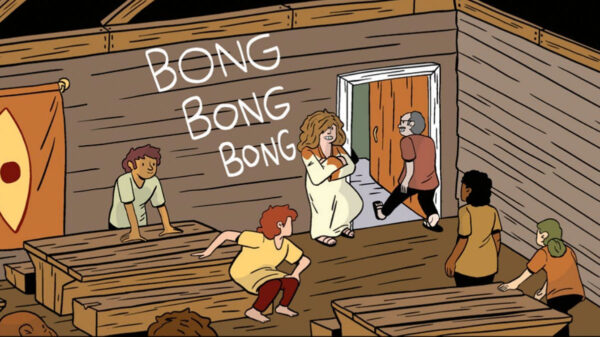
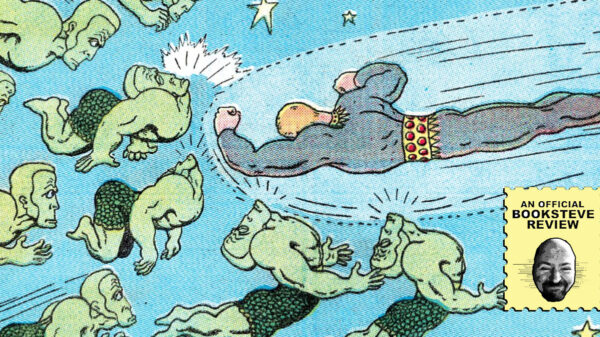
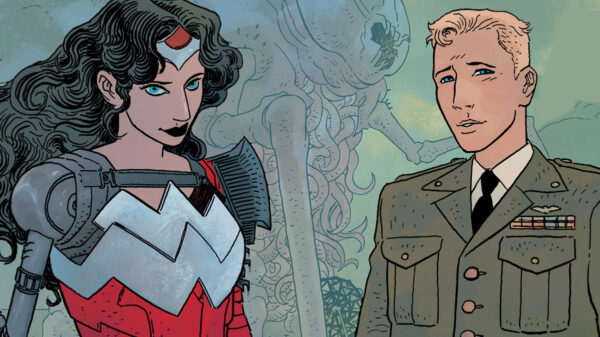









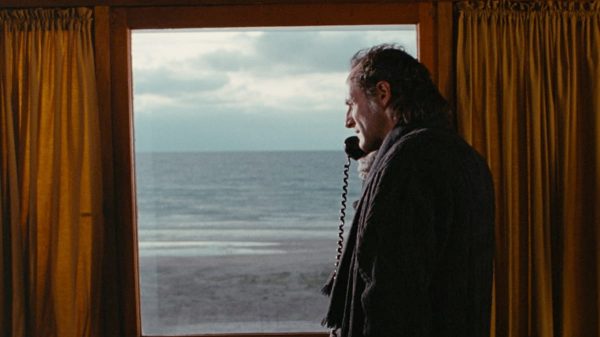
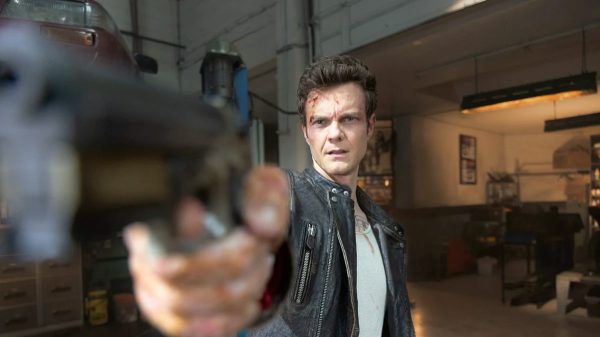
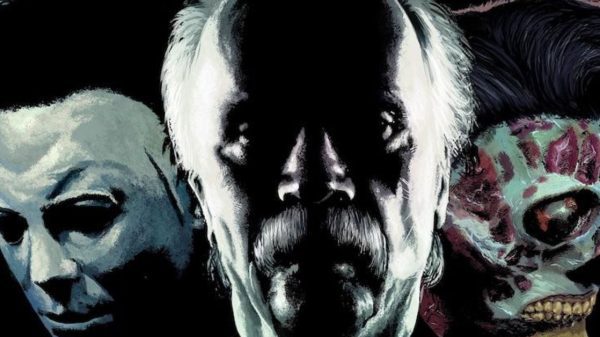
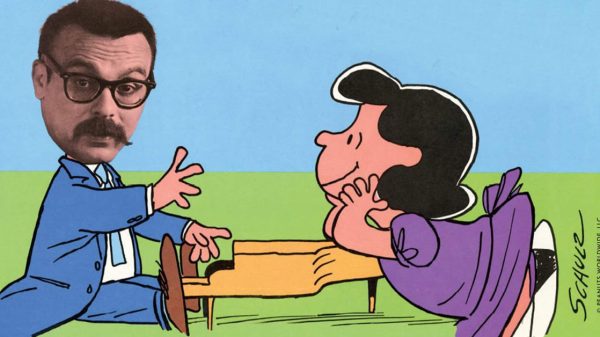
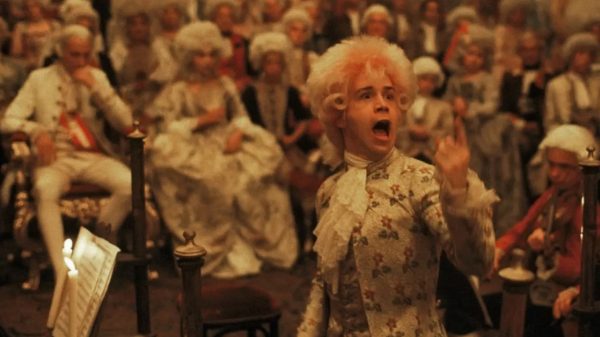





























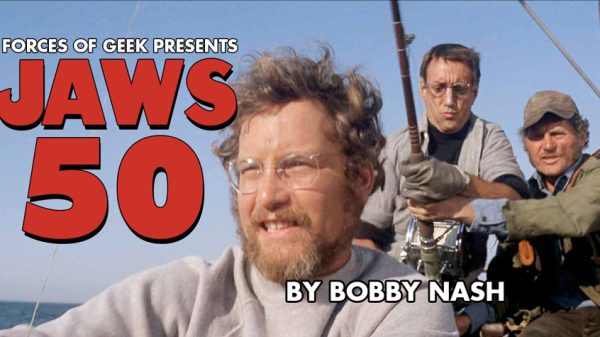









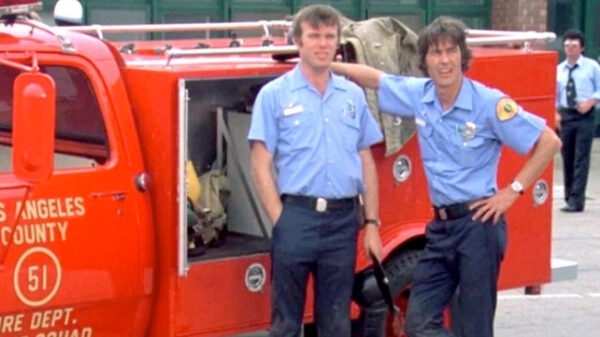
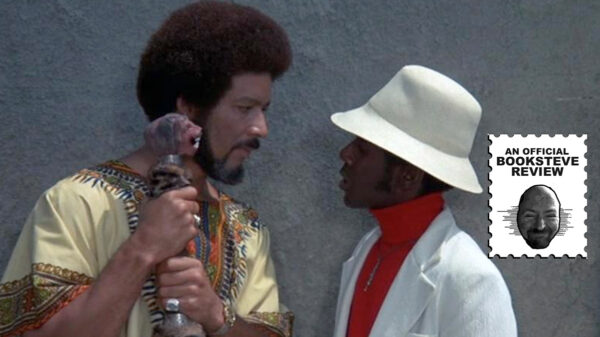
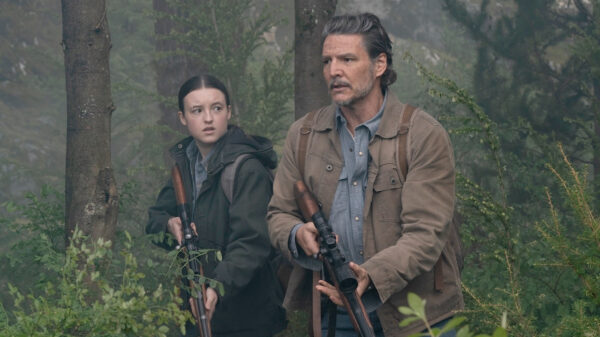




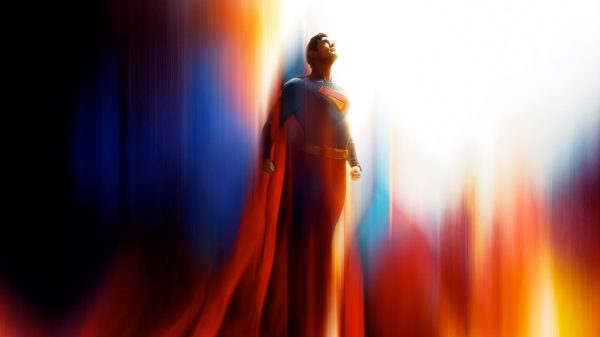







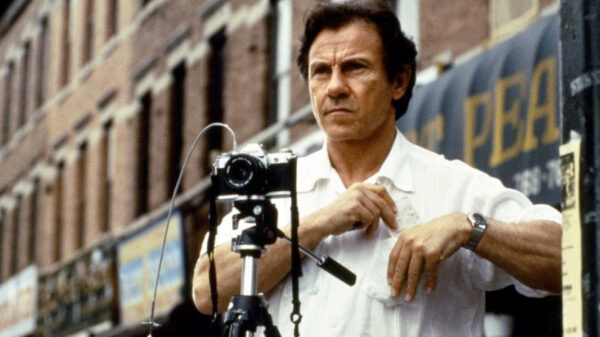
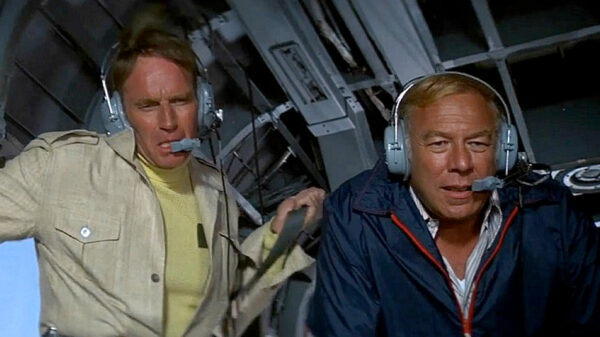




You must be logged in to post a comment Login